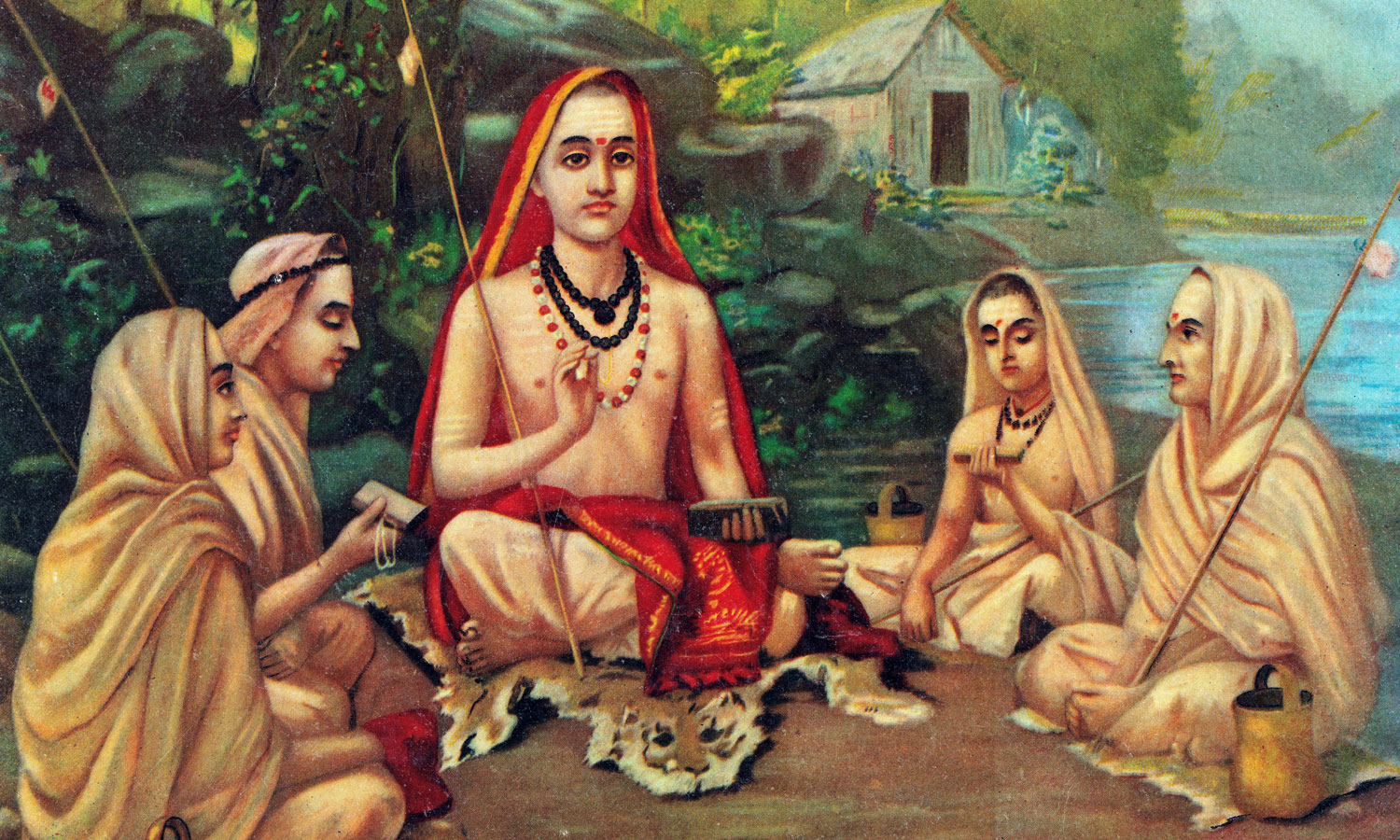Sri Hastamalakacharya: The Self-Realized Disciple
The Silent Child of Sribali
In the village of Sribali lived a learned and prosperous Brahmana named Prabhakara. Despite his scholarship and wealth, he found no happiness, for his only son seemed utterly lacking in intelligence. The boy possessed extraordinary beauty—radiant as the sun, serene as the moon, and patient as the earth—yet he appeared to be a simpleton. His sacred thread ceremony was conducted with great difficulty, and he exhibited none of the qualities expected of a Brahmin youth: he neither played nor spoke, never showed anger, and refused to study.
When Sri Shankaracharya visited the village, the boy had reached his thirteenth year. Desperate for guidance, Prabhakara brought his son before the great Acharya, hoping something might be done. With a single glance, Sri Shankaracharya perceived the boy's true nature and asked him directly: "Who are you?"
To everyone's astonishment, the boy responded in perfect Sanskrit verse, eloquently expounding the fundamental nature of the Self. Recognizing immediately that this soul was not destined for householder life, the Acharya accepted him as a disciple and initiated him into the order of sannyasa. Because the boy had revealed the essence of Truth with the clarity of a gooseberry held in one's palm, Sri Shankaracharya named him Hastamalaka.
The spontaneous verses spoken by this young aspirant were so profound that the illustrious Acharya himself later composed a commentary upon them. Though Hastamalaka attended the Acharya's teachings, it was not to acquire knowledge but to confirm his own direct experience of Reality. He had no need for dialectical training or scholarly pursuits.
Some disciples suggested that Hastamalaka, given his Self-realization, should compose a Vartika—a Sanskrit commentary in verse—on the Sutra Bhashya. Sri Shankaracharya declined this proposal, explaining that Hastamalaka's consciousness remained perpetually absorbed in the Supreme Self. He would never descend to the mental plane required for scholarly activities such as writing treatises.
When the Acharya spoke of Hastamalaka with such reverence, the other disciples grew curious. How could one who had shown no interest in scriptural study attain such profound realization? Sri Shankaracharya then revealed the extraordinary background.
The Sage's Compassionate Sacrifice
On the banks of the Yamuna River, a great sage sat in deep meditation when a group of Brahmin women arrived to bathe. One woman, carrying her two-year-old child, placed the baby beside the sage and requested him to watch over the child while she bathed. The sage, absorbed in samadhi, remained oblivious to the world around him. The child crawled unnoticed toward the river and drowned.
When the mother discovered her child's lifeless body, she wept inconsolably before the sage. Awakening from his meditation, the sage was deeply moved by the mother's grief. Through his yogic powers, he abandoned his own body and entered that of the deceased child. The child immediately returned to life, and this was the soul who later became known as Hastamalaka.
This revelation explained how he possessed such profound knowledge of the Self without any apparent instruction—he was, in truth, a realized sage who had compassionately taken birth to comfort a grieving mother and later became the disciple of Sri Adi Shankaracharya.



